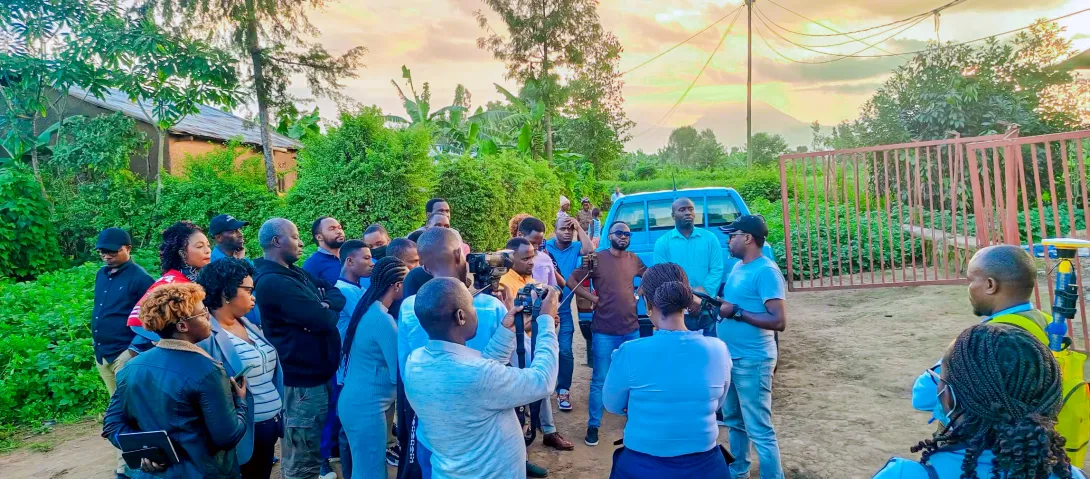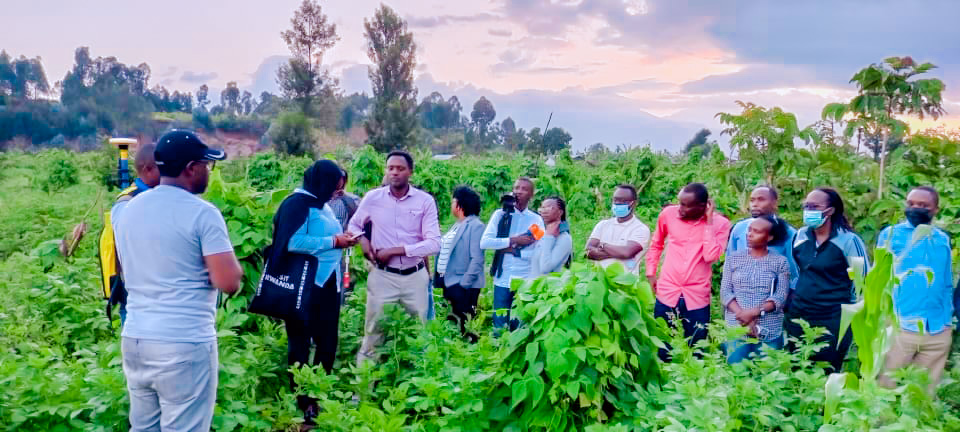
In order to promote an accurate and impactful reporting on national statistics, journalists from various media houses in Rwanda participated in a comprehensive training organized by the National Institute of Statistics of Rwanda (NISR). The training was designed to equip journalists with both theoretical and practical skills in understanding the statistical processes and data sources.
what set this training different was its strong emphasis on fieldwork. Journalists were not only taught how the data is analyzed but were also given the opportunity to observe firsthand how data is collected on the ground from sampling and interviewing citizens to recording responses with accuracy and neutrality.
Seeing how data is collected in real life helped the journalists understand the process better. They saw how much effort and care goes into making sure the statistics are correct. By joining field staff in both rural and urban areas, they experienced the challenges of collecting information and learned why it’s so important to do it properly.
Moreover, the training emphasized how turning data into compelling stories plays a crucial role in national development. Journalists explored how to move beyond just reporting figures, instead telling stories that give context to the numbers whether about unemployment trends, poverty indicators, or agricultural performance. The goal is to make statistics more relatable and useful for citizens, policymakers, and stakeholders alike.
The training also emphasized on how important it is to turn numbers into stories that people can understand. Journalists learned how to go beyond just sharing figures and instead explain what those numbers mean like changes in jobs, poverty, or farming. This helps citizens, leaders, and other groups use the information in a way that supports development and decision-making.
NISR believes that empowering the media to understand and report on statistics with clarity and accuracy is essential in fostering a well-informed public. With better grasp of both the theory and field practice, journalists can contribute meaningfully to evidence-based dialogue and ensure that data-driven stories inform decision-making at every level of society.
NISR believes that when journalists understand statistics well and report them clearly, the public becomes better informed. With knowledge from both classroom lessons and field experience, journalists can help share important facts that support smart decisions in communities and across the country
NISR believes that when the media is equipped with the right knowledge and skills, they can report more clearly and accurately, helping citizens, leaders, and organizations make better decisions. We encourage all trained journalists to use the tools and insights gained to make data-driven stories that are simple and more understandable for all.
Andre MATESO
Public Relations and Communication Officer
journalists trainings field visit
